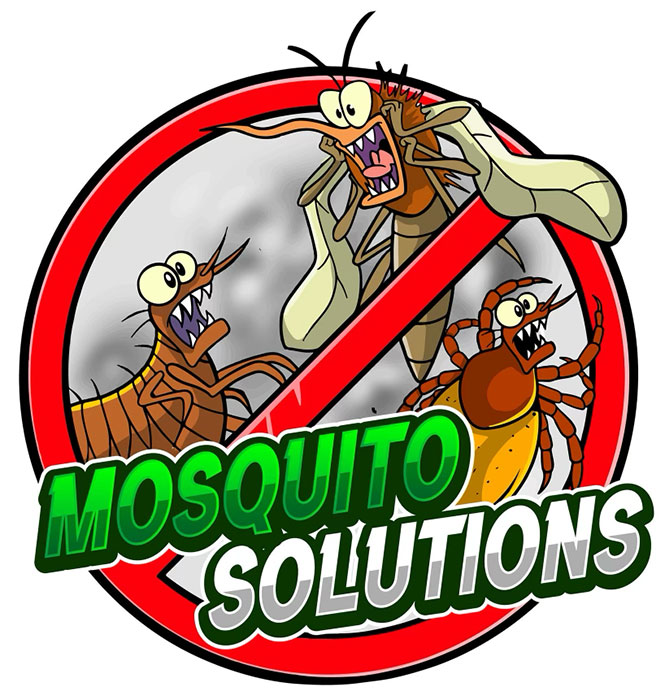Perhaps the worst part of summer is those notorious mosquitoes and their annoying bites. These little pests can be quite a nuisance to homeowners trying to enjoy some time outdoors. All that said, while most every human has experienced the itchy bite of a hungry mosquito, not everyone realizes that, in addition to human meals, mosquitos enjoy dining on cats, dogs, and other household pets, as well.
So why do mosquitos feast on your furry friends? And how can you stop them? Fortunately with the right knowledge, you can help your pet limit their chances of becoming host to a mosquito fiesta.
Do Mosquitoes Bite Dogs & Cats?
 Mosquitos eat whenever they get a chance and they don’t care if it is human blood or the blood of another warm-blooded species. They need food and nutrients, and if you have blood in your veins you could be just the opportunity for that feast they are looking for.
Mosquitos eat whenever they get a chance and they don’t care if it is human blood or the blood of another warm-blooded species. They need food and nutrients, and if you have blood in your veins you could be just the opportunity for that feast they are looking for.
That doesn’t mean, however, that mosquitoes aren’t attracted to certain animals more than others. There are a number of different factors such as body odor, fur density, and skin temperature that all play a part in drawing mosquitoes to a meal.
In fact, dogs and cats are not the only pets that look delicious to mosquitoes. Non-traditional pets, such as rabbits, ferrets, and birds, can also fall prey to mosquito bites, especially if you live in locations where mosquito populations are plentiful.
Now, this isn’t the best news… If you are a pet owner, you love your pet and don’t want it to suffer from mosquito bites. Because of this, understanding the risks that these horrid little creatures pose to your pet is important for keeping them happy and well.
Consequences of Mosquito Bites on Pets
One of the most well-known consequences of mosquito bites is the threat of disease being transferred from the mosquito to your animal friend. Just like we have seen in humans, mosquito bites have the potential to cause health issues and harmful diseases.
Perhaps the most common disease carried by mosquitoes is heartworm. When a mosquito bites your pet, heartworm larvae can be injected into their bloodstream, eventually finding the heart and lungs.
In dogs, heartworm disease can cause symptoms such as coughing, lethargy, weight loss, and difficulty breathing. In severe cases, it may lead to heart failure and death if left untreated. Cats, while less likely to develop heartworms, can still suffer from respiratory distress and other complications stemming from a mosquito’s bite.
It’s also not uncommon for dogs and cats to be allergic to the bite of a mosquito. An allergic reaction to a mosquito bite can lead to symptoms such as excessive itching, swelling, and redness around the bite site. A pet might have a hard time not scratching at the bite which can make the problem even worse, eventually leading to secondary skin infections.
If you notice any unusual behavior from your pet it is important to seek veterinary attention promptly, especially if you suspect mosquito bites are a part of the problem.
Why Do Mosquitoes Bite?
 Mosquitoes thrive off of blood. The proteins found in the blood of humans and animals are important to a female mosquitoe’s reproductive cycle. When you find a mosquito having a meal on your pet, you can bet it is a female looking to strengthen the eggs that she is carrying.
Mosquitoes thrive off of blood. The proteins found in the blood of humans and animals are important to a female mosquitoe’s reproductive cycle. When you find a mosquito having a meal on your pet, you can bet it is a female looking to strengthen the eggs that she is carrying.
When a mosquito lands on a meal they jab a straw-like extremity through the skin and inject their saliva. This saliva carries an enzyme in it that keeps the blood from clotting and causes that often irresistible urge to itch.
There are a ton of factors that play into whether your pet is more or less susceptible to being a mosquito favorite. Body heat, movement, location, carbon dioxide emissions, and odor all play into how easily a mosquito can find your fur baby. Dogs can be especially appealing to mosquitoes because of their generally active behavior and warm blooded nature. Dogs and cats that spend a lot of time outdoors increase their exposure to these nasty insects making them more likely to become a target for a feast.
Preventing Mosquito Bites on Pets
Luckily there are a few things you can do to decrease your pet’s likelihood of becoming a mosquito meal.
- Limit Outdoor Exposure: Mosquitos are most active as the sun rises and sets. If you are able to keep your pets indoors at dawn and at dusk, they will not be exposed to the same amount of mosquitoes. If your pet would rather be enjoying the fresh air of summer at these times, try to keep them in a screened outdoor area, so mosquitoes have a difficult time getting to them.
- Mosquito Repellents: There are pet-safe repellents that can help deter mosquitoes. Before spraying anything on your pet, however, double check to make sure that it is a product specifically designed for pets, and if you are unsure, talk with your veterinarian about what they would recommend.
- Eliminate Standing Water: Mosquitoes lay their eggs in water that is just sitting around. Make sure any empty containers, bird baths, or low spots in your yard aren’t collecting water. If you remove a mosquito’s breeding ground it will have little reason to stick around.
- Use Fans: Mosquitoes are weak fliers which means that using fans in your home or pet’s living area can help deter them from taking a bite out of your pets.
- Hire a Professional: Perhaps the best way to limit mosquito bites on your pet is to get rid of the little beasts altogether. Mosquito Solutions specializes in minimizing mosquitoes for you, your family, and your pets.
Solve the Problem for Good… Work With Us
You might be your dog’s best friend, but after a visit from us, we will take a close second. Call us today to learn about our pest removal services and find out how we can help you enjoy your summer even more.

Recent Comments